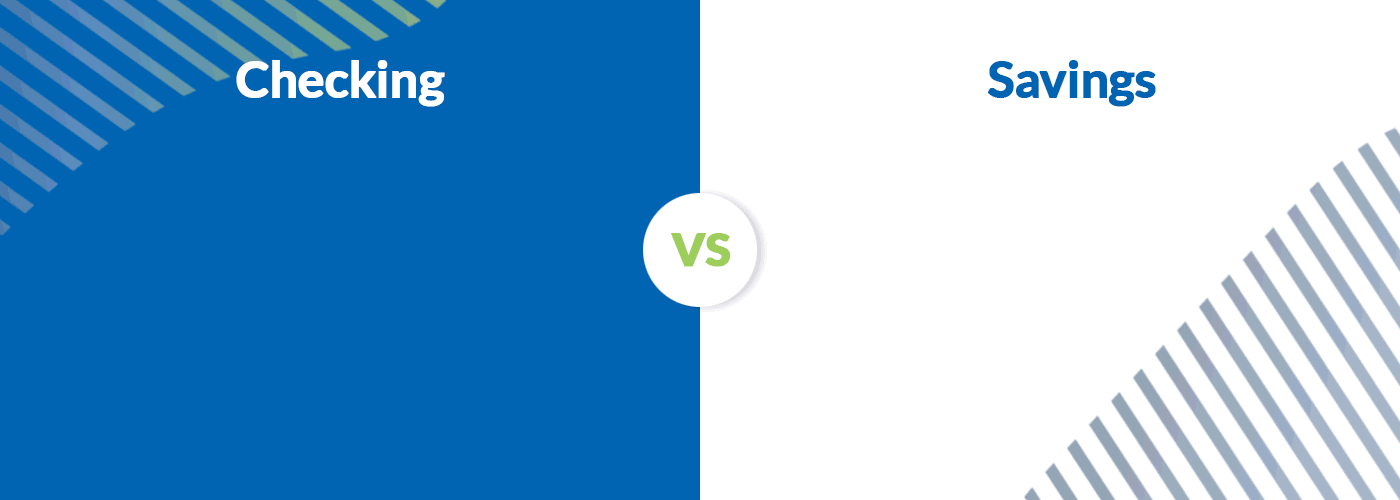Start Saving Money Fast: 5 Tips For Beginner Success
Start Saving Money Fast: 5 Tips For Beginner Success
Saving money is critical to gain financial freedom. According to the Federal Reserve’s Survey of Household Economics and Decision Making , 37% of Americans said they would struggle to come up with $400 to pay for an unexpected expense. This leaves little room for any surprise payments that life throws your way. A proper savings plan can help you save for a large purchase, avoid additional debt, be better prepared for emergency spending and plan for your future—all while reducing your overall financial stress.
Saving money can feel overwhelming, but don’t give up. A few simple tricks can get you on the track to smarter savings and closer to your personal financial goals.
1. Start a savings account
A first step towards getting your finances in order is opening a bank account – and it is important to have both a checking and a savings account. You may think that a checking account can meet all your financial needs, but the reality is that you’re setting yourself up for failure if you don’t save in the right place.
Checking accounts are meant for day-to-day needs and paying bills. By keeping your savings separated from daily spending, you’re not tempted to spend more than you should. Savings accounts earn greater interest than checking accounts which means the money in your account grows over time. Rates can vary; view comparisons to find the right one for you. These accounts are structured to have limitations which makes them less suitable for daily transactions, and ultimately, helps you keep the money where it belongs.

Don’t have a savings account? It’s simple to open one!
2. Pay yourself first
This is tried-and-true advice you’ll hear from nearly every financial expert, and there's a reason for that.
Paying financial obligations first can create the illusion that there isn’t much left to save. But consider how just 1% of your monthly income can add up over time. When you "pay yourself first," you’re putting your money to work for you because it continues to accumulate in your savings account and earns interest too. Ultimately, this brings you a step closer to being independent from methods of borrowing money that can add up quickly. Imagine budgeting and saving money for a road trip vacation compared to using your credit cards without a plan in place and racking up debt the entire trip.
Flipping the way you think about saving can make a huge difference. By saving first, you prioritize your financial goals. And it doesn’t have to be much either! The point is to save within your means.
The process of saving doesn’t have to be painful or mean you give up the things you enjoy. There are plenty of small things you can do to save that will amplify over time. Take things slow and try increasing as you go to see more significant savings growth.
The Federal Deposit Insurance Corporation has some educational podcast episodes that can give you a deeper understanding on borrowing money, ways to achieve financial goals, and more.
3. Regularly transfer money from your checking to your savings account
Opening a checking and savings account at the same financial institution may come with perks, including the ability to easily and instantaneously transfer money between accounts. We recommend this option first and foremost as it’s often a simplified process that requires less effort than setting up a transfer between external accounts.
However, if you find that this method is not possible or preferred for you, it’s a good idea to check into linking external accounts. Keep in mind that you’ll typically need more information to make the connection, such as your routing and account number, and transfers between the accounts can take a bit longer.
After that, you’re ready to save!
Pro Tip: Set up an automatic transfer
Setting up an automatic transfer can be an absolute game-changer for any saving effort. Set up an automatic transfer from your checking account to your savings account for each pay period.
4. Create a savings plan
No two savings plans look the same. You can work up to your goals—but for now—understand that any savings is a win. So be realistic about what you can put away.
Assess the situation
In order to get a real grasp on what to save, first you should understand what you’re spending. Start by looking through the last 3 months of your bank statements and categorize your expenses. Everything can fall under "necessary" or "unnecessary" spending. Once you know what is left you can use a goal savings calculator to help determine how long it will take you to reach your financial goals.
Cut back on your spending habits
Money is meant to be enjoyed, however, there should be balance too. When you find compromises that can be made—there’s money to be saved.
When analyzing your finances, look for opportunities. Can you find a cheaper cell phone carrier, eat out less, or go on fewer coffee runs? Small changes can make a big impact.
Save consistently
Whether it’s monthly, weekly, or anything in-between, it’s important to stick to your saving rhythm. Consistency adds momentum. Determine what you want to contribute to your savings and stick to it. Contributing more when you’re able is always a bonus.
Prioritize a "rainy day" fund
It may seem easier to save for more tangible goals, but it’s important to consider starting an emergency fund separate from savings. The purpose of this is to store money for when you’re down on your luck—maybe you have car trouble, unexpected medical bills, or you lose your job.
This sum of money will help you get back on your feet and should be replenished afterward. To determine your goal and plan, check out a rainy day calculator and get started.
5. Use your bank’s digital tools to easily track your progress
Don’t just set it and forget it! It's important to continue monitoring your account with digital tools to understand if your current account is the best option for you. Not sure about it? Your local banking experts are great resources for account and savings questions, so don’t be afraid to pay them a visit!
Online banking, mobile banking apps, and text message banking are powerful tools that make it easy to deposit money, pay bills, receive alerts, check your daily balances and more—in a way that fits your specific lifestyle. They are convenient tools to hold yourself accountable and ensure your hard work is paying off.
Remember, it’s never too late to start saving for things, big or small. It’s important to recognize that everyone is on their own saving path and no two are exactly the same, but you’re in control of your own financial health.
We are here to help with your savings goals! Contact your local Dollar Bank expert today.
This article is for general information purposes only and is not intended to provide legal, tax, accounting or financial advice. Any reliance on the information herein is solely and exclusively at your own risk and you are urged to do your own independent research. To the extent information herein references an outside resource or Internet site, Dollar Bank is not responsible for information, products or services obtained from outside sources and Dollar Bank will not be liable for any damages that may result from your access to outside resources. As always, please consult your own counsel, accountant, or other advisor regarding your specific situation.
Posted: October 23, 2020




